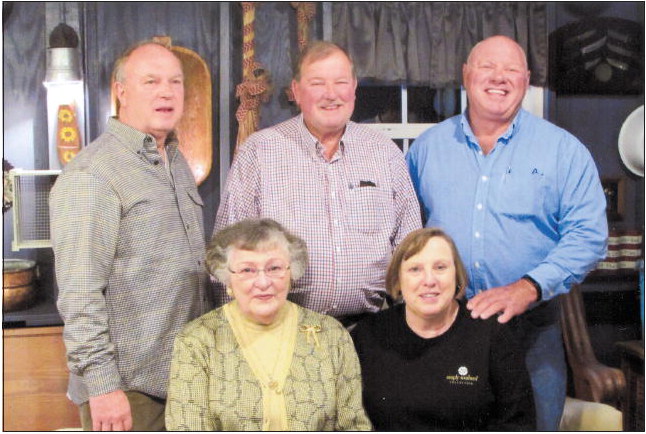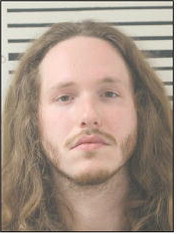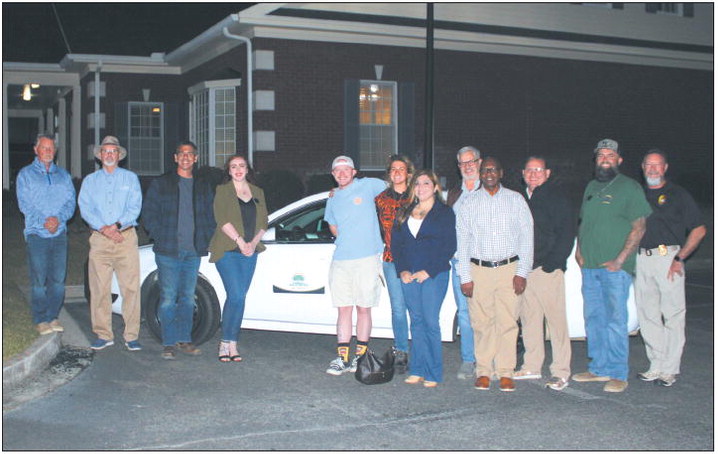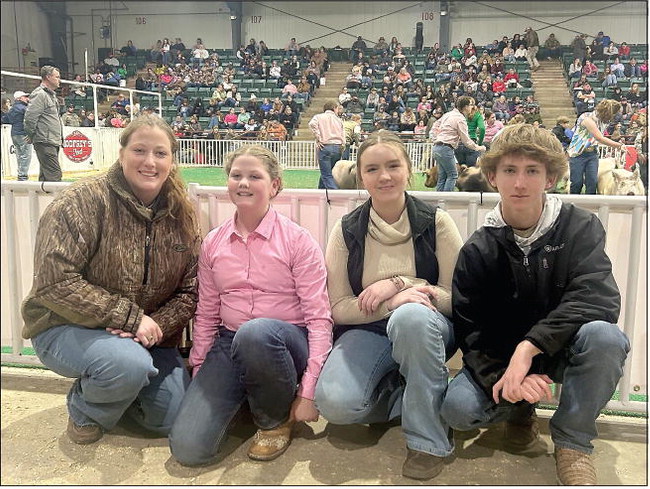continued from page students also, ….


continued from page
students also, as there was no such thing as assistance for education.”
Eula’s relationship moved a little faster than the usual, as she married William Thomas “W.T.” Rollins in January 1953 – only a few months before she graduated. “I certainly don’t advocate following my lead at such a young age, but I was a little more mature than the average 16 or 17 year-old.”
The maturity may have helped in the survival of Eula’s marriage, but it did not make it any easier to convince her parents to allow the nuptials. “It was no easy feat to convince my parents that we wanted to get married,” she commented. “After the bold promise that I would graduate from high school, they finally relented. Love prevailed; I married the love of my life in January 1953, graduated from high school in May 1953, and had our first child in December 1953. Was I busy or what? [I was} a high school student, a new wife, and a mother – all within the period of twelve months.”
Eula and W.T. created a life similar to the one she had as a child; he worked as a farmer, and she helped with all the duties surrounding that job. The couple had four children – Tommy, Randy, Ronnie, and Angela – who all were taught to work on the farm and to help the family, just as Eula was taught as a child. “They learned how to do any and everything that was honest and honorable,” she shared. “They were always taught to do their best – whatever the task. Along with doing well at any job, they learned to manage their time, responsibilities, and resources.” In Sickness and In Health
These life lessons learned by Eula and the children throughout their lives were very helpful when W.T. was diagnosed with inoperable lung cancer, and given only a few months to live.
“Cancer was a death sentence in 1971,” she emphasized. “It was a different time – the modern lifesaving medicine was not available.”
During W.T.’s sickness, the children, other family members, and neighbors all came together to grow and harvest the crops on the family farm, while Eula and her husband traveled to and from Savannah for radiation therapy.
Though the couple was diligent in their work to treat the cancer, W.T.’s illness progressed. “We had ‘family conferences’ to try to keep our heads above water and our hearts at peace,” Eula reminisced. “He knew I would be faced with decisions to make I’d never had to make alone.”
Yet, according to Eula, W.T. continued to encourage the family. “He was very emphatic about the children getting a college education, [even while] knowing it was going to be a hardship, and it was. They made him that promise and all four followed through with it,” she shared.
“He emphasized to us that there was a distinct difference in being prepared to die and being ready to die,” Eula remarked. “He assured us that he was prepared to die, but not ready to leave us. He was a Godly man who loved his family second to his God.”
He also helped to prepare Eula for the financial hardships which his death would bring, cautioning her that she would need to be even more frugal than before to help the family survive and improve from the situation.
“With four children to finish rearing and educating, we realized farming was not going to be the answer for us,” she recounted. “Farming plans that are made in early spring don’t always look the same by harvest time in the fall. Many unforeseeable and adverse conditions arise – from not enough rain, to too much rain, to market instability, to name a few – and can surely change the bottom line. Farming is a great life, an honorable one – just not always a profitable one monetarily.”
After having this realization, the family began to sell the equipment, and Eula began to look for jobs that would provide a routine paycheck. She previously had worked a few clerical jobs, such as bookkeeping and secretarial jobs at Aiken-McArthur Hospital and Toombs Central School, so she knew she was familiar and capable of record keeping work. “I always figured if someone else could do it, I could also do it, and most likely a little more efficiently,” she commented.
Eula was not alone in this effort, as the children also worked jobs on campus when gaining their education, and came home on weekends to work more to help support themselves and the family. “All four of the children fulfilled the promise to their father that they would get a college education and become community-minded, productive citizens and to remember ‘who they were and whose they were,” she continued.
Life After Death
After her husband’s death, Eula continued to put her energy and effort towards helping herself and her children create productive, meaningful lives. “Even though we still miss him, we feel that he looks down upon us and knows we did our best with the life lessons he instilled in us, and he is pleased with our decisions,” she emphasized.
Their friend and neighbor, Mr. R.L. Cato, gave her a job working for his company, Cato Enterprises, where she was an employee from October 1972 until Mr. Cato’s death in 1997.
“I helped him to expand his operation tremendously,” she explained. “It meant long hours on a job during harvesting and shipping season, but I felt it was better to have one good job than to have to leave and go to another just to make ends meet. It gave me more family time.”
After Mr. Cato’s death, Eula’s sons bought the business from the Cato heirs, and continue to work it today. “They have continued their father’s legacy by their involvement in community activities and continuing to practice good stewardship of the land,” she said. “I’m sure he is pleased with their accomplishments.”
The men continue to work with their businesses, as Eula’s daughter, who retired from Southern Nuclear in 2014, has now joined her brothers in their business efforts, allowing Eula to retire. “I’m pushing towards 87 years old and feel that I have made my contribution in the workforce,” she commented.
Continuing to Shine
Eula continues to shine a light of love and hard work as she lives her daily life – yet, it is her faith that she holds dearest.
“Our faith has meant many things throughout our lives. I recall an old adage that describes faith as ‘seeing the invisible, feeling the intangible, and achieving the impossible.’ I have lived many days on, what seemed to me, faith alone – believing the unseen and always looking for the best in everything and everyone, which can be hard,” she stressed.
“I carry deep Christian convictions that were instilled in me from a very early age and I have managed to maintain them through many trials and tribulations,” Eula added. “They were instilled in me at such an early age that I don’t even know when or how they began. I just try to keep Philippians 4:13 in my mind, [which says] ‘I can do all things through Christ who strengthens me.”
It was that very verse which helped encourage Eula and her family through the hardships they faced with the illness and death of W.T. Knowing the power of words and encouragement, Eula now encourages others through cards and other gifts as a form of service to the Lord.
“I have my ‘card ministry,’ where I send cards and notes to the residents of nursing facilities, shut-ins, and others. I send 40-60 cards each week,” she said. “I still make cakes, pies, candies, cookies, jams, jellies, preserves, pickles, and relishes to share with family and friends.” She also never fails to remind others that she “absolutely refuses to let anyone steal her joy,” and encourages others to do the same.
When she’s not giving to others, Eula enjoys spending her days sewing, reading, crafting, and growing her famous amaryllis. “I have a green thumb for Red Velvet Amaryllis. I have the prettiest amaryllis beds around – but that could just be my opinion,” she commented with a laugh.
Overall, Eula strives to live out her days as the Lord intended; as she said, He has guided her every step of the way. “His plan is my plan; I call it the master plan,” she concluded. “I trust whatever and wherever it leads.”

TENDING HER AMARYLLIS – Eula now spends her days doing a variety of things, one of which is tending her amaryllis plants.







